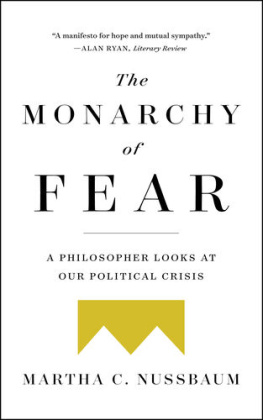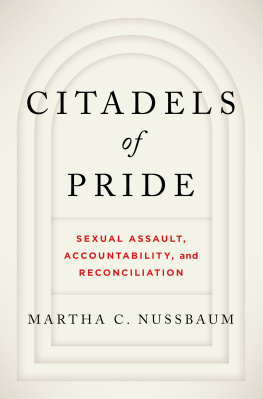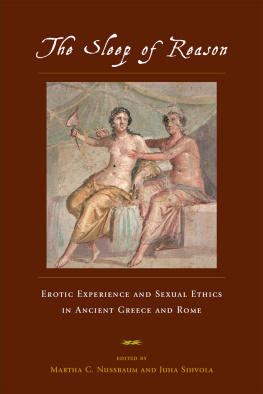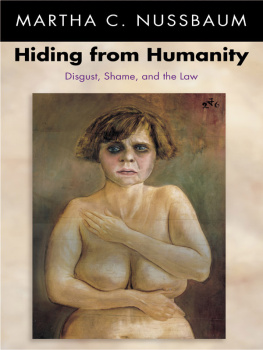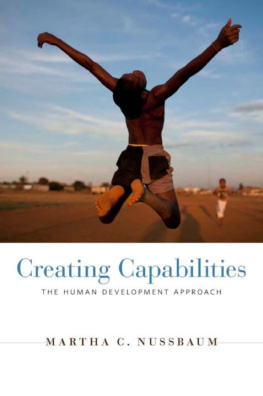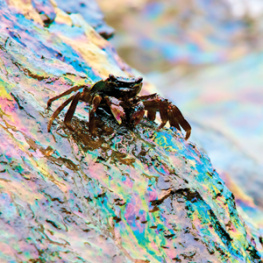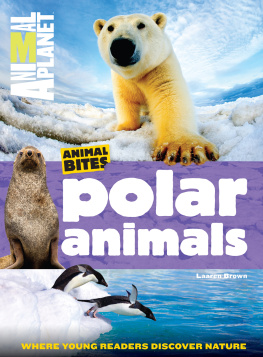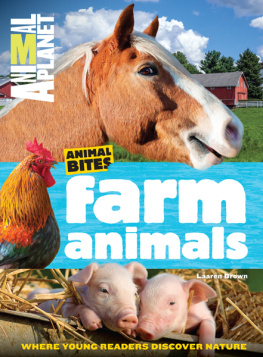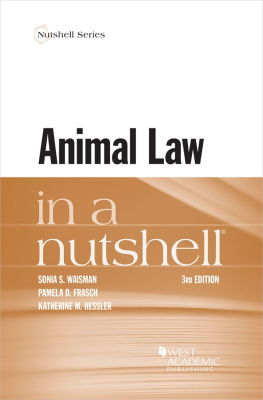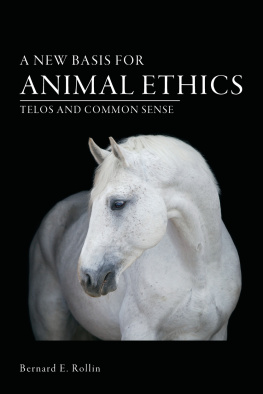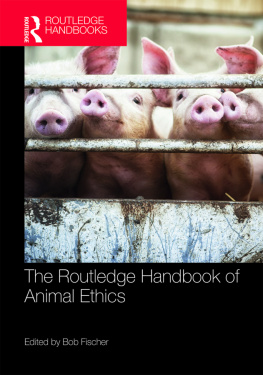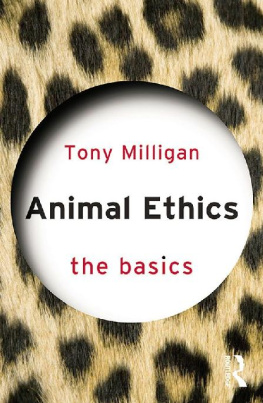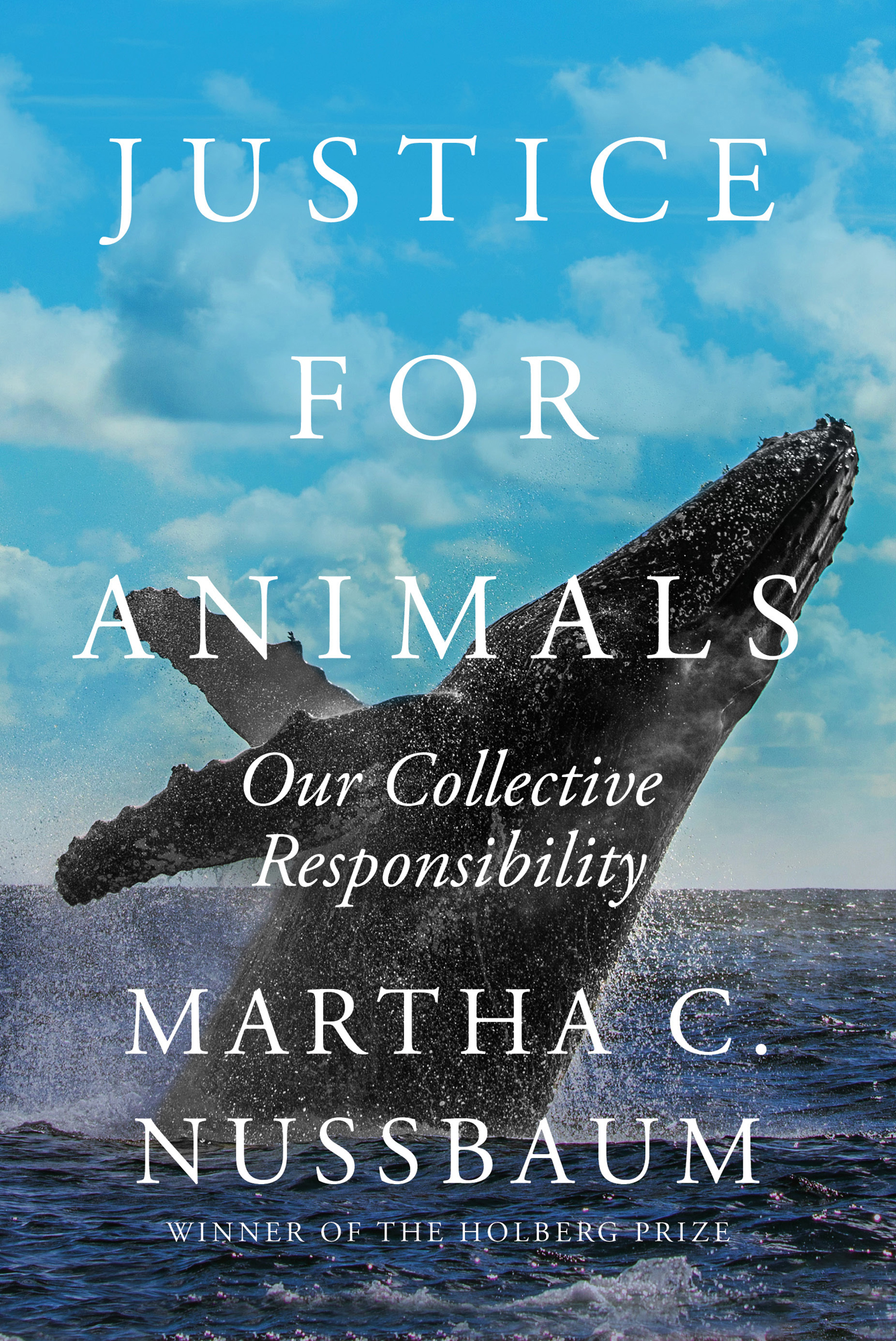Contents
Guide
Justice for Animals
Our Collective Responsibility
Martha C. Nussbaum
Winner of the Holberg Prize
To the memory of Rachel,
and to all the whales
Introduction
Animals are in trouble all over the world. Our world is dominated by humans everywhere: on land, in the seas, and in the air. No non-human animal escapes human domination. Much of the time, that domination inflicts wrongful injury on animals: whether through the barbarous cruelties of the factory meat industry, through poaching and game hunting, through habitat destruction, through pollution of the air and the seas, or through neglect of the companion animals that people purport to love.
In a way, this problem is age-old. Both Western and non-Western philosophical traditions have deplored human cruelty to animals for around two millennia. The Hindu emperor Ashoka (c. 304232 BCE ), a convert to Buddhism, wrote about his efforts to give up meat and to forgo all practices that harmed animals. In Greece the Platonist philosophers Plutarch (46119 CE ) and Porphyry (c. 234305 CE ) wrote detailed treatises deploring human cruelty to animals, describing their keen intelligence and their capacity for social life, and urging humans to change their diet and their way of life. But by and large these voices have fallen on deaf ears, even in the supposedly moral realm of the philosophers, and most humans have continued to treat most animals like objects, whose suffering does not matteralthough they sometimes make an exception for companion animals. Meanwhile, countless animals have suffered cruelty, deprivation, and neglect.
Today, we have, then, a long-overdue ethical debt: to listen to arguments we have refused to hear, to care for what we have obtusely ignored, and to act on the knowledge of our bad practices that we can so easily attain. But today we have reasons humans never had before to do something about human wrongs to animals. First, human domination has increased exponentially in the past two centuries. In Porphyrys world, animals suffered when they were killed for meat, but up to that point they lived pretty decent lives. There was no factory meat industry that, today, breeds these animals as if they were just meat already, confining them in horrible conditions, cramped and isolated, until they die before ever having decently lived. Animals were long hunted in the wild, but for the most part their habitats were not taken over for human dwellings or invaded by poachers seeking to make money from the murder of an intelligent being, an elephant or a rhinoceros. In the seas, humans have always fished for food, and whales have long been hunted for their commercial value. But the sea was not full of plastic trash that entices animals to dine on it, and then chokes them to death. Nor did companies drilling for undersea oil create noise pollution everywhere (drilling, air bombs used to chart the oceans floor), making life increasingly difficult for social creatures whose sense of hearing is their primary mode of communication. Birds were shot for food, but those who escaped did not choke on air pollution or crash fatally into urban skyscrapers, whose lights entice them. In short: the scope of human cruelty and neglect was relatively narrow. Today new forms of animal cruelty turn up all the timewithout even being recognized as cruelty, since their impact on the lives of intelligent beings is barely considered. So we have not just the overdue debt of the past, but a new moral debt that has increased a thousandfold and is continually increasing.
Because the reach of human cruelty has expanded, so too has the involvement of virtually all people in it. Even people who do not consume meat produced by the factory farming industry are likely to have used single-use plastic items, to use fossil fuels mined beneath the ocean and polluting the air, to dwell in areas in which elephants and bears once roamed, or to live in high-rise buildings that spell death for migratory birds. The extent of our own implication in practices that harm animals should make every person with a conscience consider what we can all do to change this situation. Pinning guilt is less important than accepting the fact that humanity as a whole has a collective duty to face and solve these problems.
So far, I have not spoken of the extinction of animal species, because this is a book about loss and deprivation suffered by individual creatures, each of whom matters. Species as such do not suffer loss. However, extinction never takes place without massive suffering of individual creatures: the hunger of a polar bear, starving on an ice floe, unable to cross the sea to hunt; the sadness of an orphan elephant, deprived of care and community as the species dwindles rapidly; the mass extinctions of songbird species as a result of unbreathable air, a horrible death. When human practices hound species toward extinction, member animals always suffer greatly and live squashed and thwarted lives. Besides, the species themselves matter for creating diverse ecosystems in which animals can live well (see further in chapter 5).
Extinctions would take place even without human intervention. Even in such cases we might have reasons to intervene to stop them, because of the importance of biodiversity. But scientists agree that todays extinctions are between one thousand and ten thousand times higher than the natural extinction rate. The story of this book is not that story of mass extinction, but the sufferings of individual creatures that take place against this background of human indifference to biodiversity.
There is a further reason why the ethical evasion of the past must end now. Today we know far more about animal lives than we did even fifty years ago. We know much too much for the glib excuses of the past to be offered without shame. Porphyry and Plutarch (and Aristotle before them) knew a lot about animal intelligence and sensitivity. But somehow humans find ways of forgetting what the science of the past has plainly revealed, and for many centuries most people, including most philosophers, thought animals were brute beasts, automata without a subjective sense of the world, without emotions, without society, and perhaps even without the feeling of pain.
Recent decades, however, have seen an explosion of high-level research covering all areas of the animal world. One of the great pleasures of writing this book has been that of immersion in this research. We now know more not only about animals long closely studiedprimates and companion animalsbut also about animals who are difficult to studymarine mammals, whales, fish, birds, reptiles, and cephalopods.
What do we know? We knownot just by observation, but by carefully designed experimental workthat all vertebrates and many invertebrates feel pain subjectively, and have, more generally, a subjectively felt view of the world: the world looks like something to them. We know that all of these animals experience at least some emotions (fear being the most ubiquitous), and that many experience emotions like compassion and grief that involve more complex takes on a situation. We know that animals as different as dolphins and crows can solve complicated problems and learn to use tools to solve them. We know that animals have complex forms of social organization and social behavior. More recently, we have been learning that these social groups are not simply places where a rote inherited repertory is acted out, but places of complicated social learning. Species as different as whales, dogs, and many types of birds clearly transmit key parts of the species repertoire to their young socially, not just genetically.

